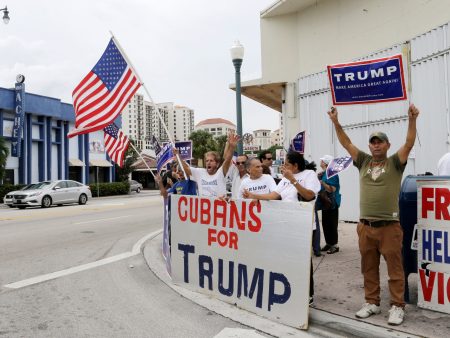In light of President-elect Donald Trump’s recent announcement about imposing a 25% tariff on products imported from Mexico and Canada, leaders from both nations are advocating for dialogue and collaboration to address the potential economic repercussions. Mexican President Claudia Sheinbaum emphasized the importance of working together to tackle shared challenges and warned that the proposed tariffs could trigger a cycle of retaliatory tariffs, jeopardizing businesses and increasing inflation and unemployment in both countries. During a press conference, she expressed her intent to reach out to Trump with a letter outlining the necessity for cooperative efforts instead of escalating trade tensions.
Trump’s statements, delivered via social media, framed the tariffs as a means to address issues such as drug trafficking and illegal immigration, particularly focusing on Mexico. He asserted that these tariffs would remain until the perceived crises were resolved. The bipartisan concern from both Mexico and Canada is that the tariffs would not only strain their economies but also adversely affect American consumers through increased prices on essential goods. Experts have argued that such protectionist policies could lead to heightened costs for everyday products, ultimately undermining the economic benefits that Trump intends to bring to domestic manufacturing.
In a response to Trump’s threats, Canadian Prime Minister Justin Trudeau highlighted the historical and longstanding relationships between the United States and Canada during a recent conversation with Trump. Trudeau underscored the importance of collaboration in addressing common challenges and reiterated his government’s commitment to actively engage with the new administration. Amid growing pressures from provincial leaders, particularly from right-wing politicians who are anxious about the border situation, Trudeau recognizes the need for a united front in navigating the complexities of trade relations with the United States.
The potential imposition of the 25% tariff raises significant concerns about the ramifications for labor and employment in both Canada and the U.S. Political leaders, including Ontario’s Premier Doug Ford and Alberta’s Premier Danielle Smith, have called for an urgent response and a proactive approach to resolving any new complications arising from Trump’s proposed tariffs. They stress the need to safeguard the economic interests of their provinces, particularly in light of Canada’s role as a crucial supplier of energy resources and its significant trade ties with the U.S.
As financial markets reacted to Trump’s rhetoric, the Mexican peso experienced a notable drop against the U.S. dollar, while valuations of major automotive manufacturers were adversely affected. Experts, like Asa McKercher from St. Francis Xavier University, suggest that Trump’s threats may be part of a negotiation strategy rather than a sincere commitment to enact harsh tariffs, as such actions could bring severe repercussions for the American economy. The close trade relationship between the U.S. and both Canada and Mexico underscores the interdependence of their economies, with billions of dollars in goods and services exchanged daily.
Both Mexico and Canada have reiterated their willingness to cooperate in addressing issues that transcend trade concerns, such as drug trafficking and migration. President Sheinbaum emphasized Mexico’s commitment to efforts combating fentanyl trafficking and acknowledged the challenges posed by arms smuggling from the U.S. to Mexico. By highlighting the need for joint strategies and dialogue, leaders from these nations seek to foster a cooperative environment that tackles regional challenges while simultaneously mitigating the economic risks posed by Trump’s aggressive trade policies and rhetoric.










